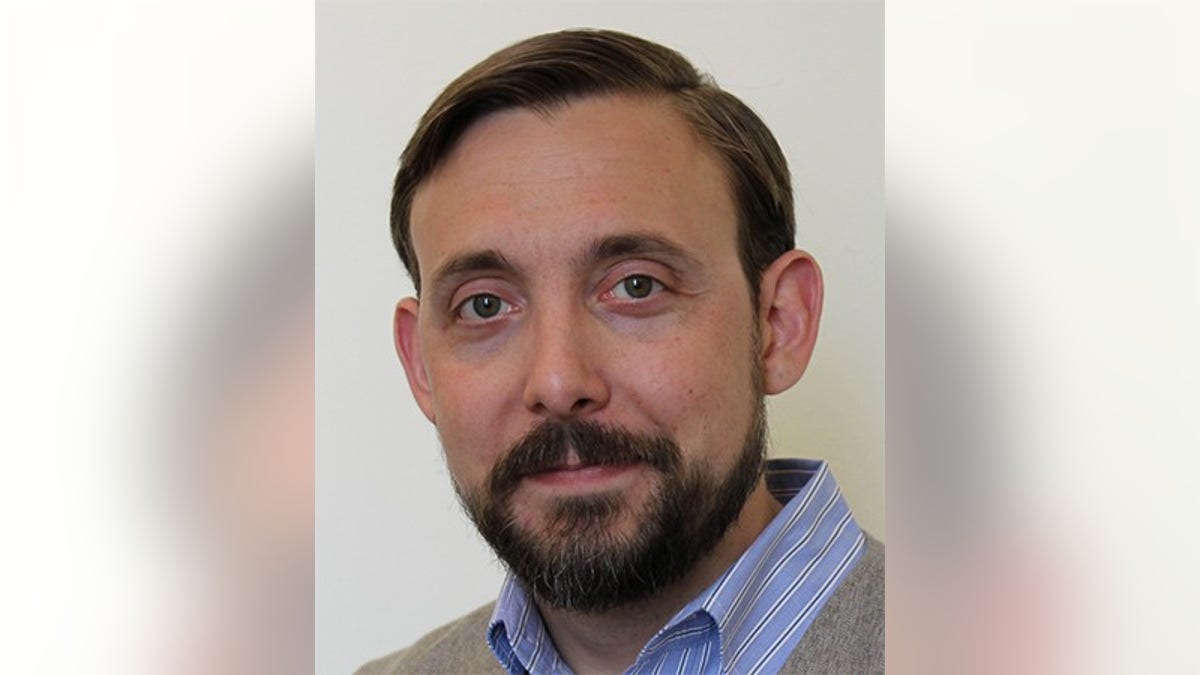
Travis Rieder (Johns Hopkins Berman Institute of Bioethics)
Travis Rieder spent more than four weeks in hospitals and nearly lost his foot after a van ran a stop sign and struck his motorcycle on Memorial Day weekend in 2015.
Rieder, 35, a research scientist at the Johns Hopkins Berman Institute of Bioethics in Baltimore, considers himself handicapped now. He can no longer ride his bike, run or race, and sometimes he limps.
Still, the toughest challenge wasn't the accident, five surgeries or having to walk with a cane, Rieder writes in a personal essay in Health Affairs.
His biggest trial came three months after the crash, when he returned home and one of his doctors advised him to get off the high doses of opioids prescribed to relieve his pain.
"I thought withdrawal might kill me," Rieder writes. "The nausea left me curled up on the floor of the bathroom in the middle of the night."
"I went three days without real sleep and - for the very first time in my life - had suicidal thoughts," the essay says.
Rieder, a bioethicist, told Reuters Health in a phone interview that he wants to start a conversation about how the dozen doctors treating him were unable to provide him with information about how to stop taking the addictive medications.
The fact that no one on his medical team could help him was particularly stunning and infuriating given the national spotlight on the opioid epidemic, a crisis that has touched people in every state and in every demographic category in the U.S., Rieder said.
Opioid drug overdoses killed more than 33,000 Americans in 2015, according to the U.S. Centers for Disease Control and Prevention.
Since 2009, more Americans have died every year from prescription opioid overdoses than from car crashes.
Rieder's physicians knew how to control his pain with opioids. But they had no realistic plan for how he could quit taking them.
In fact, three weeks into an agonizing tapering scheme, when his wife called his prescribing doctor, a plastic surgeon, to say that her husband needed relief from crushing depression and the physical stress of withdrawal, the doctor suggested that Rieder might want to go back on the drugs.
"When people become addicted to painkillers after suffering a trauma, the best advice they might get from physicians when coping with withdrawal is to go back on it to feel better," he writes. "Can we really do no better than that?"
"This is just insanely common," Rieder told Reuters Health. "Doctors don't know how to get patients off the medication. They have no education. This isn't taught anywhere in most medical schools."
Canadian-trained veterinarians generally receive more education on pain management and medicine than American-trained physicians, Rieder reports.
"This happened to me," he said. "I'm a well-educated white dude who's a professor at one of the best medical research institutions in the country. Is it any surprise that we've got this heroin epidemic? About 80 percent of heroin users say they got their start on prescription opioids," he said.
"It never even occurred to me that I should be aggressively looking for the first possible moment that I could begin decreasing my medication, and no one told me to do so," he writes in his essay.
People who become addicted to prescription painkillers and can no longer get their fix from physician-prescribed drugs sometimes turn to illegal drugs, often heroin.
"If someone like me has this hard a time getting off the medication, are you really so shocked that a bunch of people never really get off it?" Rieder asked.
Dr. Karl Wittnebel is not shocked. He directs a preoperative pain program for spinal-surgery patients at Cedars-Sinai Medical Center in Los Angeles. The program was launched two years ago to try to reduce patients' painkiller dosages before they undergo surgery.
Doctors often continue prescribing opioids past the time they are medically indicated and often fail to advise patients about how to wean off them, Wittnebel said in a phone interview.
The medications work best for acute, short-term pain, rather than long-term, chronic pain, he said.
"There's a large number of people on high doses of medically prescribed opioids who lack access to medical practitioners willing to help them get off these drugs in an appropriate manner," said Wittnebel, who was not involved with Rieder's care.
Part of the problem, Wittnebel and Rieder said, is that doctors are paid poorly, if at all, for the complicated task of helping patients withdraw from opioids.
"Now that we understand the debilitating nature of opioid medications," Wittnebel said, "we need to work to make opioid-reduction programs more accessible."
